Explore the dynamic world of Open Educational Resources and discover how OER Africa is driving the movement forward. This page is divided into two sections:
Articles: Our articles aim to deliver insights on OER-related themes that inform, spark conversation, and engage with the developing open education landscape, with a particular focus on Africa.
Updates: Below, the articles, you'll find updates on OER Africa’s latest initiatives, activities, and contributions to the OER community.
Articles
This section features targeted articles crafted specifically for educators, students, and the global Open Educational Resources (OER) community. The articles examine themes related to OER, offering insightful perspectives and information. The content seeks to inform, prompt discussion, and actively engage with the dynamic landscape of open education, particularly within the African context.
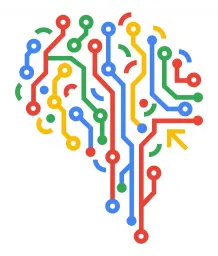
African languages are vastly underrepresented in the global knowledge pool, even though scholars at Harvard University believe that Africa is home to about one third of the world’s languages. This week, we delve into how Artificial Intelligence can assist with African language representation, and some of the challenges therein.
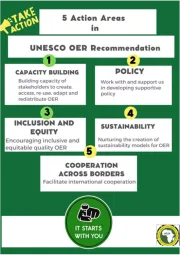
In August 2023, the African Library and Information Associations and Institutions (AfLIA) and Neil Butcher & Associates (NBA) co-published an Overview for African Librarians on the UNESCO OER Recommendation and Open Knowledge.
A William and Flora Hewlett Foundation grant to NBA funded the research and writing entailed in producing the Overview.
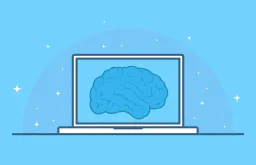
Over the past year, news about Artificial Intelligence (AI) has abounded. Information about breakthroughs and new applications have become commonplace, and we have been thrust into a world where AI-enabled technologies are starting to change how we work and live.
In this article, we consider three ways that AI might change how we use OER.
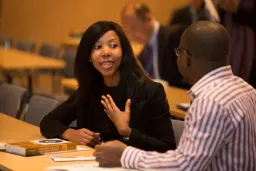
There have been several recent calls for Continuous Professional Development (CPD) to take a more prominent role at the higher education level. OER Africa is in the process of developing three CPD frameworks to structure capacity building for academics, academic librarians, and senior management in higher education institutions.
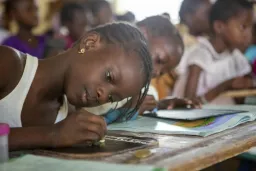
Well-designed and implemented national education policy is an indispensable tool for creating and sustaining vibrant Open Educational Resource (OER) ecosystems and promoting OER adoption. A new report by Neil Butcher & Associates provides insight into the current global OER policy landscape, outlining their research on national OER policy development and implementation.
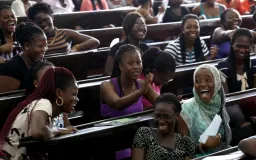
Since 2019, the United Nations Educational, Scientific, and Cultural Organization (UNESCO) has celebrated the International Day of Education on 24 January. This, year the theme is “to invest in people, prioritize education.” This week, we draw parallels between the International Day of Education, the OER Recommendation, and OER capacity building.
Updates
This section provides updates on OER Africa’s initiatives and activities. Stay informed about our contributions to the OER community and how we are driving the open education movement forward.

Launching OER Degree Pathways: An Early Snapshot of Achieving the Dream’s OER Degree Initiative and Emerging Lessons is a formative evaluation report prepared by SRI International that was released in June, 2017.
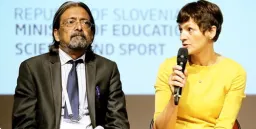
Jenny Glennie and Neil Butcher recently attended the 2nd World OER Congress in Slovenia. South Africa was represented by the Honourable Minister Angie Motshekga, Minister of the Department of Basic Education. Ministers present reaffirmed their committment of the important role of OERs in the attached Ministerial Statement.
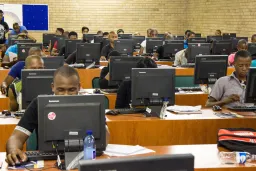
We have created a PDF of our Supporting Distance Learners online resource that will be used at a workshop to be conducted at the University of Lesotho which others may find useful too.

Amanda Coolidge, Senior Manager , Open Education at BC Campus, and Daniel De Marte, Chief Academic Officer at Tidewater Community College have released an interactive toolkit to support institutions develop open policies. The toolkit is licensed CC BY and institutions are free to reuse it, remix it, revise it, and/or redistribute it.

